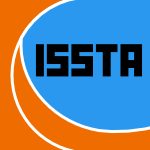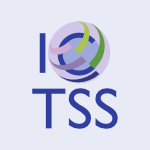123 papers:
 CASE-2015-WareS #synthesis #using
CASE-2015-WareS #synthesis #using- Synthesis time optimal accepting traces using language projection and pruning (SW, RS), pp. 1363–1368.
 MSR-2015-GantayatDPMS #stack overflow
MSR-2015-GantayatDPMS #stack overflow- The Synergy between Voting and Acceptance of Answers on StackOverflow — Or the Lack Thereof (NG, PD, RP, SM, VSS), pp. 406–409.
 LATA-2015-VerdierR #constraints #reachability #specification
LATA-2015-VerdierR #constraints #reachability #specification- Quotient of Acceptance Specifications Under Reachability Constraints (GV, JBR), pp. 299–311.
 CHI-2015-KayPK #bibliography #classification #evaluation #how
CHI-2015-KayPK #bibliography #classification #evaluation #how- How Good is 85%?: A Survey Tool to Connect Classifier Evaluation to Acceptability of Accuracy (MK, SNP, JAK), pp. 347–356.
 DUXU-IXD-2015-HalbeyKZ
DUXU-IXD-2015-HalbeyKZ- Going on a Road-Trip with My Electric Car: Acceptance Criteria for Long-Distance-Use of Electric Vehicles (JH, SK, MZ), pp. 473–484.
 DUXU-IXD-2015-LageiroLD #evaluation
DUXU-IXD-2015-LageiroLD #evaluation- Evaluation of Users Acceptance of a Digital Medicine Fact Sheet: Findings from a Focus Group (AL, CL, ED), pp. 638–647.
 HCI-DE-2015-StopkaPF #concept #requirements
HCI-DE-2015-StopkaPF #concept #requirements- User Requirements for Intermodal Mobility Applications and Acceptance of Operating Concepts (US, RP, KF), pp. 415–425.
 HIMI-IKC-2015-ItoSK #information management
HIMI-IKC-2015-ItoSK #information management- Information Sharing System Based on Situation Comprehensions of Intelligent Vehicles to Improve Drivers’ Acceptability for Proactive ADAS (TI, TS, MK), pp. 201–212.
 SEKE-2015-CabrejosVMC #usability #web
SEKE-2015-CabrejosVMC #usability #web- Evaluating Software Engineers’ Acceptance of a Technique and Tool for Web Usability Inspection (LJERC, AMRV, JCM, TC), pp. 140–145.
 SAC-2015-SoaresJMP #open source
SAC-2015-SoaresJMP #open source- Acceptance factors of pull requests in open-source projects (DMS, MLdLJ, LM, AP), pp. 1541–1546.
 DATE-2014-BanerjeeD #calculus #constraints #generative #random #realtime #sequence
DATE-2014-BanerjeeD #calculus #constraints #generative #random #realtime #sequence- Acceptance and random generation of event sequences under real time calculus constraints (KB, PD), pp. 1–6.
 ITiCSE-2014-SimonCSCJ #student
ITiCSE-2014-SimonCSCJ #student- Student perceptions of the acceptability of various code-writing practices (S, BC, JS, AC, CJ), pp. 105–110.
 ICSME-2014-TaoHK #empirical #open source
ICSME-2014-TaoHK #empirical #open source- Writing Acceptable Patches: An Empirical Study of Open Source Project Patches (YT, DH, SK), pp. 271–280.
 CHI-2014-McNaneyVRBZPO #people
CHI-2014-McNaneyVRBZPO #people- Exploring the acceptability of google glass as an everyday assistive device for people with parkinson’s (RM, JV, DR, MB, PZ, IP, PO), pp. 2551–2554.
 DUXU-ELAS-2014-ZiefleBKS
DUXU-ELAS-2014-ZiefleBKS- Public Perception and Acceptance of Electric Vehicles: Exploring Users’ Perceived Benefits and Drawbacks (MZ, SBL, KK, MS), pp. 628–639.
 HCI-AS-2014-ZaunbrecherKZ #self
HCI-AS-2014-ZaunbrecherKZ #self- The Willingness to Adopt Technologies: A Cross-Sectional Study on the Influence of Technical Self-efficacy on Acceptance (BSZ, SK, MZ), pp. 764–775.
 HIMI-AS-2014-MoorthyV
HIMI-AS-2014-MoorthyV- Voice Activated Personal Assistant: Acceptability of Use in the Public Space (AEM, KPLV), pp. 324–334.
 HIMI-AS-2014-Sakurai #education
HIMI-AS-2014-Sakurai #education- The Value Improvement in Education Service by Grasping the Value Acceptance State with ICT Utilized Education Environment (YS), pp. 90–98.
 KMIS-2014-ToureMM14a #information management #modelling #towards #what
KMIS-2014-ToureMM14a #information management #modelling #towards #what- What If We Considered Awareness for Sustainable Knowledge Management? Towards a Model for Self Regulated Knowledge Management Systems Based on Acceptance Models of Technologies and Awareness (CET, CM, JCM), pp. 413–418.
 RE-2014-SutcliffeRBS #requirements
RE-2014-SutcliffeRBS #requirements- Discovering affect-laden requirements to achieve system acceptance (AS, PR, CNB, PS), pp. 173–182.
 ISSTA-2014-KingNSCM #agile #domain-specific language #named #testing #tool support #web
ISSTA-2014-KingNSCM #agile #domain-specific language #named #testing #tool support #web- Legend: an agile DSL toolset for web acceptance testing (TMK, GN, DS, AC, CM), pp. 409–412.
 STOC-2013-Huang #approximate #satisfiability
STOC-2013-Huang #approximate #satisfiability- Approximation resistance on satisfiable instances for predicates with few accepting inputs (SH), pp. 457–466.
 CSCW-2013-SchneiderSPD #ad hoc #experience #how #online
CSCW-2013-SchneiderSPD #ad hoc #experience #how #online- Arguments about deletion: how experience improves the acceptability of arguments in ad-hoc online task groups (JS, KS, AP, SD), pp. 1069–1080.
 DUXU-PMT-2013-ArningTZJ #architecture #elicitation #mobile #requirements
DUXU-PMT-2013-ArningTZJ #architecture #elicitation #mobile #requirements- Eliciting User Requirements and Acceptance for Customizing Mobile Device System Architecture (KA, BT, MZ, EMJ), pp. 439–448.
 HCI-IMT-2013-JeonL #design #evaluation #smarttech #user interface
HCI-IMT-2013-JeonL #design #evaluation #smarttech #user interface- The Ecological AUI (Auditory User Interface) Design and Evaluation of User Acceptance for Various Tasks on Smartphones (MJ, JHL), pp. 49–58.
 HCI-UC-2013-HimmelZA #monitoring
HCI-UC-2013-HimmelZA #monitoring- From Living Space to Urban Quarter: Acceptance of ICT Monitoring Solutions in an Ageing Society (SH, MZ, KA), pp. 49–58.
 HIMI-HSM-2013-SuzukiM #fault
HIMI-HSM-2013-SuzukiM #fault- Acceptable System Error of Collision Avoidance System Based on the Integrated Error of Driver and System (KS, MM), pp. 568–576.
 HIMI-HSM-2013-ZiefleKWH #perspective
HIMI-HSM-2013-ZiefleKWH #perspective- Acceptance of Telemedical Treatments — A Medical Professional Point of View (MZ, LK, WW, AH), pp. 325–334.
 ICEIS-v1-2013-AguiarPSMASRP #information management #pervasive
ICEIS-v1-2013-AguiarPSMASRP #information management #pervasive- Pervasive Information Systems to Intensive Care Medicine — Technology Acceptance Model (JA, FP, MFS, JM, AA, ÁMS, FR, FP), pp. 177–184.
 KDD-2013-YangHLC #network #online #probability #social
KDD-2013-YangHLC #network #online #probability #social- Maximizing acceptance probability for active friending in online social networks (DNY, HJH, WCL, WC), pp. 713–721.
 ECMFA-2013-KholkarYTDS #experience #industrial #modelling #process #testing
ECMFA-2013-KholkarYTDS #experience #industrial #modelling #process #testing- Experience with Industrial Adoption of Business Process Models for User Acceptance Testing (DK, PY, HT, AD, AS), pp. 192–206.
 ICST-2013-AlegrothNO #automation #named #testing
ICST-2013-AlegrothNO #automation #named #testing- JAutomate: A Tool for System- and Acceptance-test Automation (EA, MN, HHO), pp. 439–446.
 CASE-2012-WeiM #design #framework #order #process #scheduling
CASE-2012-WeiM #design #framework #order #process #scheduling- Design of an order acceptance and scheduling module in a unified framework with product and process features (JW, YSM), pp. 968–973.
 WCRE-2012-NegaraS #automation #javascript #testing #web
WCRE-2012-NegaraS #automation #javascript #testing #web- Automated Acceptance Testing of JavaScript Web Applications (NN, ES), pp. 318–322.
 PLDI-2012-CarbinKMR #approximate #nondeterminism #proving #source code
PLDI-2012-CarbinKMR #approximate #nondeterminism #proving #source code- Proving acceptability properties of relaxed nondeterministic approximate programs (MC, DK, SM, MCR), pp. 169–180.
 DLT-2012-DennunzioFP
DLT-2012-DennunzioFP- Acceptance Conditions for ω-Languages (AD, EF, JP), pp. 320–331.
 CHI-2012-MalheirosJPBS #case study #effectiveness #personalisation
CHI-2012-MalheirosJPBS #case study #effectiveness #personalisation- Too close for comfort: a study of the effectiveness and acceptability of rich-media personalized advertising (MM, CJ, SP, SB, MAS), pp. 579–588.
 ICST-2012-Borjesson #automation #industrial #testing #user interface #visual notation
ICST-2012-Borjesson #automation #industrial #testing #user interface #visual notation- Industrial Applicability of Visual GUI Testing for System and Acceptance Test Automation (EB), pp. 475–478.
 DATE-2011-HeGO #design #energy
DATE-2011-HeGO #design #energy- Controlled timing-error acceptance for low energy IDCT design (KH, AG, MO), pp. 758–763.
 AFL-2011-CermakM #automaton #strict
AFL-2011-CermakM #automaton #strict- n-Accepting Restricted Pushdown Automata Systems (MC, AM), pp. 168–183.
 AFL-2011-ManeaT #network
AFL-2011-ManeaT #network- Accepting Networks of Evolutionary Processors with Subregular Filters (FM, BT), pp. 300–314.
 DUXU-v1-2011-Maguire #design #guidelines
DUXU-v1-2011-Maguire #design #guidelines- Guidelines on Website Design and Colour Selection for International Acceptance (MCM), pp. 162–171.
 HCD-2011-HajekPJB #behaviour #multimodal
HCD-2011-HajekPJB #behaviour #multimodal- Influence of a Multimodal Assistance Supporting Anticipatory Driving on the Driving Behavior and Driver’s Acceptance (HH, DP, MJ, KB), pp. 217–226.
 HCI-UA-2011-Loiacono-MelloDTP #case study #generative #why
HCI-UA-2011-Loiacono-MelloDTP #case study #generative #why- Why Virtual Job Recruitment Is Not Well Accepted by Generation Y? — A Case Study on Second Life (ETLM, SD, BT, OVP), pp. 245–254.
 HCI-UA-2011-Vera-MunozAPOPB #evaluation #usability
HCI-UA-2011-Vera-MunozAPOPB #evaluation #usability- Results of the Usability and Acceptance Evaluation of a Cardiac Rehabilitation System (CVM, MTA, IP, MO, JMPB, ADdB), pp. 219–225.
 HIMI-v2-2011-BrandtLDBJ #communication #protocol
HIMI-v2-2011-BrandtLDBJ #communication #protocol- Flight Deck Workload and Acceptability of Verbal and Digital Communication Protocols (SLB, JL, AQVD, VB, WWJ), pp. 463–472.
 ICEIS-J-2011-Shen #comparison #comprehension #social #trust
ICEIS-J-2011-Shen #comparison #comprehension #social #trust- Understanding User’s Acceptance of Social Shopping Websites: Effects of Social Comparison and Trust (JS), pp. 365–373.
 ICEIS-v1-2011-AdamKM #enterprise #resource management
ICEIS-v1-2011-AdamKM #enterprise #resource management- Acceptance of Enterprise Resource Planning Systems by Small Manufacturing Enterprises (RA, PK, AvdM), pp. 229–238.
 ICEIS-v2-2011-TarsauliyaTS #network #search-based #using
ICEIS-v2-2011-TarsauliyaTS #network #search-based #using- Financial Time Series Forecast using Simulated Annealing and Threshold Acceptance Genetic BPA Neural Network (AT, RT, AS), pp. 172–177.
 ICEIS-v3-2011-ZongYTS #analysis #research #visual notation
ICEIS-v3-2011-ZongYTS #analysis #research #visual notation- Visual Analysis of Research on Acceptance of Information Technology (QJZ, QJY, LyT, HZS), pp. 415–420.
 ICEIS-v4-2011-Marks #collaboration #learning #student
ICEIS-v4-2011-Marks #collaboration #learning #student- Students’ Acceptance of E-Group Collaboration Learning (AM), pp. 269–274.
 ICEIS-v4-2011-ShenE #comparison #social #trust
ICEIS-v4-2011-ShenE #comparison #social #trust- User Acceptance of Social Shopping Sites — Social Comparison and Trust (JS, LBE), pp. 219–224.
 ICLP-2011-Simko #logic programming #order
ICLP-2011-Simko #logic programming #order- Accepting the natural order of rules in a logic program with preferences (AS), pp. 284–289.
 VMCAI-2011-ChadhaSV #automaton #probability
VMCAI-2011-ChadhaSV #automaton #probability- Probabilistic Büchi Automata with Non-extremal Acceptance Thresholds (RC, APS, MV), pp. 103–117.
 ITiCSE-2010-SaeedYS
ITiCSE-2010-SaeedYS- Effect of media richness on user acceptance of blogs and podcasts (NS, YY, SS), pp. 137–141.
 LATA-2010-Ehlers #automaton
LATA-2010-Ehlers #automaton- Short Witnesses and Accepting Lassos in ω-Automata (RE), pp. 261–272.
 LATA-2010-NagyO
LATA-2010-NagyO- CD-Systems of Stateless Deterministic R(1)-Automata Accept All Rational Trace Languages (BN, FO), pp. 463–474.
 CHI-2010-BohmeK #empirical
CHI-2010-BohmeK #empirical- Trained to accept?: a field experiment on consent dialogs (RB, SK), pp. 2403–2406.
 CHI-2010-DowMMM #social
CHI-2010-DowMMM #social- Eliza meets the wizard-of-oz: evaluating social acceptability (SPD, MM, BM, MM), pp. 547–556.
 CHI-2010-LiuLRLWL #how #mobile
CHI-2010-LiuLRLWL #how #mobile- How socio-economic structure influences rural users’ acceptance of mobile entertainment (JL, YL, PLPR, HL, XW, DL), pp. 2203–2212.
 CHI-2010-MazurekABGIJLLOSSVBCGR #data access #social
CHI-2010-MazurekABGIJLLOSSVBCGR #data access #social- Access control for home data sharing: evaluating social acceptability (MLM, JPA, JB, NG, II, CJ, DL, YL, JO, BS, RS, KV, LB, LFC, GRG, MKR), pp. 645–654.
 CHI-2010-RicoB #gesture #interface #mobile #social
CHI-2010-RicoB #gesture #interface #mobile #social- Usable gestures for mobile interfaces: evaluating social acceptability (JR, SAB), pp. 887–896.
 ICEIS-HCI-2010-WuLFW #perspective
ICEIS-HCI-2010-WuLFW #perspective- The Acceptance of Wireless Healthcare for Individuals — An Integrative View (ILW, JYL, CYF, SMW), pp. 124–130.
 ICPR-2010-MakiharaHY #how #question
ICPR-2010-MakiharaHY #how #question- How to Control Acceptance Threshold for Biometric Signatures with Different Confidence Values? (YM, MAH, YY), pp. 1208–1211.
 ICSE-2010-SalgerE #development #information management #specification #testing
ICSE-2010-SalgerE #development #information management #specification #testing- Knowledge transfer in global software development: leveraging acceptance test case specifications (FS, GE), pp. 211–214.
 SPLC-2010-GhanamM #execution #feature model #modelling #testing #using
SPLC-2010-GhanamM #execution #feature model #modelling #testing #using- Linking Feature Models to Code Artifacts Using Executable Acceptance Tests (YG, FM), pp. 211–225.
 LATA-2009-MitranaT #network #on the
LATA-2009-MitranaT #network #on the- On Accepting Networks of Evolutionary Processors with at Most Two Types of Nodes (VM, BT), pp. 588–600.
 HCI-NT-2009-HermannJSS #internet #using
HCI-NT-2009-HermannJSS #internet #using- Acceptance of Future Technologies Using Personal Data: A Focus Group with Young Internet Users (FH, DJ, DS, AS), pp. 431–437.
 OCSC-2009-OzokGWNMW #health #usability
OCSC-2009-OzokGWNMW #health #usability- Usability and User Acceptance for Personal Health Records: A Perspective from Healthcare Citizens (AAO, APG, HW, MN, DM, JW), pp. 690–699.
 OCSC-2009-TanakaMF #communication #estimation #multi #online
OCSC-2009-TanakaMF #communication #estimation #multi #online- Supporting Acceptable Dialogue Start Based on User Uninterruptibility Estimation for Avatar-Mediated Multi-tasking Online Communication (TT, KM, KF), pp. 272–281.
 KMIS-2009-MottaPR #case study #documentation #elicitation #requirements
KMIS-2009-MottaPR #case study #documentation #elicitation #requirements- User Goal-oriented Requirements Elicitation to Improve Acceptance and Use — A Case Study on Document Management (GM, GP, PR), pp. 153–160.
 RecSys-2009-HuP #recommendation
RecSys-2009-HuP #recommendation- Acceptance issues of personality-based recommender systems (RH, PP), pp. 221–224.
 REFSQ-2009-MarholdRSD #experience #non-functional #requirements
REFSQ-2009-MarholdRSD #experience #non-functional #requirements- Clarifying Non-functional Requirements to Improve User Acceptance — Experience at Siemens (CM, CR, CS, JD), pp. 139–146.
 KR-2008-LoriniL #logic
KR-2008-LoriniL #logic- A Logical Account of Institutions: From Acceptances to Norms via Legislators (EL, DL), pp. 38–48.
 SEKE-2008-Condori-FernandezP #metric #modelling #towards
SEKE-2008-Condori-FernandezP #metric #modelling #towards- Towards a Theoretical Model for Evaluating the Acceptance of Model-driven Measurement Procedures (NCF, OP), pp. 22–25.
 DATE-2007-HsiehLB #detection #fault #reduction
DATE-2007-HsiehLB #detection #fault #reduction- Reduction of detected acceptable faults for yield improvement via error-tolerance (TYH, KJL, MAB), pp. 1599–1604.
 ITiCSE-2007-LevyB #education #tool support
ITiCSE-2007-LevyB #education #tool support- We work so hard and they don’t use it: acceptance of software tools by teachers (RBBL, MBA), pp. 246–250.
 MSR-2007-BirdGD #detection
MSR-2007-BirdGD #detection- Detecting Patch Submission and Acceptance in OSS Projects (CB, AG, PTD), p. 26.
 CIAA-2007-Klunder #automaton #finite
CIAA-2007-Klunder #automaton #finite- Finite Automata Accepting Star-Connected Languages (BK), pp. 312–313.
 HCI-AS-2007-ZamzuriW
HCI-AS-2007-ZamzuriW- The Role of Cognitive Styles in Groupware Acceptance (NZ, WW), pp. 835–845.
 HCI-IDU-2007-EvjemoAS #lessons learnt
HCI-IDU-2007-EvjemoAS #lessons learnt- User Acceptance of Digital Tourist Guides Lessons Learnt from Two Field Studies (BE, SA, AS), pp. 746–755.
 HCI-IDU-2007-ZhangA
HCI-IDU-2007-ZhangA- Attitudes in ICT Acceptance and Use (PZ, SNA), pp. 1021–1030.
 HCI-IPT-2007-HongCH #case study #smarttech
HCI-IPT-2007-HongCH #case study #smarttech- A Study on the Acceptance Factors of the Smart Clothing (JYH, HSC, KHH), pp. 1106–1112.
 HCI-MIE-2007-XuBAM #empirical #fault #recognition #speech
HCI-MIE-2007-XuBAM #empirical #fault #recognition #speech- An Empirical Study on Users’ Acceptance of Speech Recognition Errors in Text-Messaging (SX, SB, MA, DM), pp. 232–242.
 ICSE-2007-JanzenS #agile #development #testing
ICSE-2007-JanzenS #agile #development #testing- A Leveled Examination of Test-Driven Development Acceptance (DJ, HS), pp. 719–722.
 CAV-2007-BarnatBS #detection #performance
CAV-2007-BarnatBS #detection #performance- I/O Efficient Accepting Cycle Detection (JB, LB, PS), pp. 281–293.
 CIAA-2005-FujiyoshiK #automaton #linear #recognition
CIAA-2005-FujiyoshiK #automaton #linear #recognition- Deterministic Recognition of Trees Accepted by a Linear Pushdown Tree Automaton (AF, IK), pp. 129–140.
 ITiCSE-2004-BenayaZ #question #student
ITiCSE-2004-BenayaZ #question #student- Can students improve their undergraduate schievements and get accepted to graduate school? (TB, EZ), p. 246.
 CHI-2004-HarterVGMR #energy #evaluation #user interface
CHI-2004-HarterVGMR #energy #evaluation #user interface- Energy-aware user interfaces: an evaluation of user acceptance (TH, SV, EG, MM, PR), pp. 199–206.
 ICEIS-v5-2004-Pahnila #information management #personalisation #predict
ICEIS-v5-2004-Pahnila #information management #personalisation #predict- Predicting the User Acceptance of Personalized Information Systems: Case Medical Portal (SP), pp. 195–202.
 CIAA-2003-FrishertCW #automaton #regular expression
CIAA-2003-FrishertCW #automaton #regular expression- The Effect of Rewriting Regular Expressions on Their Accepting Automata (MF, LGC, BWW), pp. 304–305.
 DLT-2002-AltenberndTW #infinity
DLT-2002-AltenberndTW #infinity- Tiling Systems over Infinite Pictures and Their Acceptance Conditions (JHA, WT, SW), pp. 297–306.
 DLT-2002-Domaratzki #automaton #bound #finite
DLT-2002-Domaratzki #automaton #bound #finite- Improved Bounds on the Number of Automata Accepting Finite Languages (MD), pp. 209–219.
 CAV-2002-YounesS #probability #using #verification
CAV-2002-YounesS #probability #using #verification- Probabilistic Verification of Discrete Event Systems Using Acceptance Sampling (HLSY, RGS), pp. 223–235.
 VMCAI-2002-TorreMN #automaton
VMCAI-2002-TorreMN #automaton- Weak Muller Acceptance Conditions for Tree Automata (SLT, AM, MN), pp. 240–254.
 ASE-2001-OHalloran #assurance
ASE-2001-OHalloran #assurance- Acceptance Based Assurance (CO), pp. 63–70.
 TOOLS-PACIFIC-2000-AuerD #development #migration #object-oriented
TOOLS-PACIFIC-2000-AuerD #development #migration #object-oriented- A Model for the Migration to object-oriented Software Development with Special Emphasis on Improvement of Acceptance (DA, HD), pp. 132–145.
 TestCom-2000-MaggioreVP #approach #quality
TestCom-2000-MaggioreVP #approach #quality- The Test Sub Group (TSG): A Cooperative Approach to Improve the Release Quality before Type Acceptance (GM, SV, JP), p. 239–?.
 ASE-1999-Kreuer #automation #case study #network #testing
ASE-1999-Kreuer #automation #case study #network #testing- Applying Test Automation to Type Acceptance Testing of Telecom Networks: A Case Study with Customer Participation (DK), pp. 216–223.
 ICALP-1999-PeichlV #automaton #finite
ICALP-1999-PeichlV #automaton #finite- Finite Automata with Generalized Acceptance Criteria (TP, HV), pp. 605–614.
 HCI-CCAD-1999-Iakovidis #health #human-computer #perspective
HCI-CCAD-1999-Iakovidis #health #human-computer #perspective- User acceptance in health telematics: an HCI perspective (II), pp. 863–867.
 HCI-EI-1999-Richardson
HCI-EI-1999-Richardson- Prosody and User Acceptance of TTS (KHR), pp. 1332–1336.
 AdaEurope-1999-Fernandez #object-oriented #testing
AdaEurope-1999-Fernandez #object-oriented #testing- Acceptance Testing of Object Oriented Systems (JLF), pp. 114–123.
 ICEIS-1999-Wu #case study #perspective #web
ICEIS-1999-Wu #case study #perspective #web- A Causal Model for the Intention to Use a Web Site: A Study Based on the Technology Acceptance Model and the Uses and Gratifications Perspective (CJW), p. 788.
 ICLP-1999-HitzlerS
ICLP-1999-HitzlerS- A Characterization of Acceptability (PH, AKS), p. 609.
 HCI-CC-1997-SmithS
HCI-CC-1997-SmithS- The Acceptability of Icons Across Countries (JAS, MPS), pp. 177–180.
 WIA-1996-Maurel #automaton
WIA-1996-Maurel #automaton- Building Automata on Schemata and Acceptability Tables: Application to French Data Adverbials (DM), pp. 72–86.
 DLT-1995-BordihnF #bibliography #perspective
DLT-1995-BordihnF #bibliography #perspective- Accepting Grammars and Systems: An Overview (HB, HF), pp. 199–208.
 DLT-1995-LitovskyS #finite #infinity #word
DLT-1995-LitovskyS #finite #infinity #word- Finite Acceptance of Infinite Words (IL, LS), pp. 360–369.
 CHI-1995-FrankishHM #interface #recognition
CHI-1995-FrankishHM #interface #recognition- Recognition Accuracy and User Acceptance of Pen Interfaces (CF, RH, PM), pp. 503–510.
 ICLP-1994-KakasMD #logic programming #semantics #source code
ICLP-1994-KakasMD #logic programming #semantics #source code- The Acceptability Semantics for Logic Programs (ACK, PM, PMD), pp. 504–519.
 HCI-ACS-1993-VaananenH #case study #communication #guidelines #multi #testing #usability
HCI-ACS-1993-VaananenH #case study #communication #guidelines #multi #testing #usability- Testing Acceptance and Usability of Multimedia in Man-Machine Communication: A Case Study and Guidelines (KV, DH), pp. 450–455.
 HCI-SHI-1993-DillonND #experience #interactive #performance
HCI-SHI-1993-DillonND #experience #interactive #performance- Spoken Language Interaction: Effects of Vocabulary Size and Experience on User Efficiency and Acceptability (TWD, AFN, MJD), pp. 140–145.
 IWPTS-1993-VermeerB #communication #testing
IWPTS-1993-VermeerB #communication #testing- Interoperability Testing: Basis for the Acceptance of Communication Systems (GV, HB), pp. 315–330.
 HT-ECHT-1992-Ritchie #future of #hypermedia #question
HT-ECHT-1992-Ritchie #future of #hypermedia #question- The Future of Electronic Literacy: Will Hypertext Ever Find Acceptance? (IR), p. 1.
 STOC-1992-Safra #automaton #exponential
STOC-1992-Safra #automaton #exponential- Exponential Determinization for ω-Automata with Strong-Fairness Acceptance Condition (Extended Abstract) (SS), pp. 275–282.
 ICALP-1991-Hashiguchi #algorithm #generative #regular expression
ICALP-1991-Hashiguchi #algorithm #generative #regular expression- Algorithms for Determining the Smallest Number of Nonterminals (States) Sufficient for Generating (Accepting) a Regular Language (KH), pp. 641–648.
 OOPSLA-1991-Snyder #how
OOPSLA-1991-Snyder #how- How to Get Your Paper Accepted at OOPSLA (AS), pp. 359–363.
 VLDB-1990-GrayHW #array #low cost #reliability #throughput
VLDB-1990-GrayHW #array #low cost #reliability #throughput- Parity Striping of Disk Arrays: Low-Cost Reliable Storage with Acceptable Throughput (JG, BH, MW), pp. 148–161.
 ICALP-1987-Pin #automaton #finite #on the
ICALP-1987-Pin #automaton #finite #on the- On the Language Accepted by Finite Reversible Automata (JÉP), pp. 237–249.
 STOC-1979-Cook #polynomial
STOC-1979-Cook #polynomial- Deterministic CFL’s Are Accepted Simultaneously in Polynomial Time and Log Squared Space (SAC), pp. 338–345.
 ICALP-1979-Deussen #algorithm #parsing
ICALP-1979-Deussen #algorithm #parsing- One Abstract Accepting Algorithm for all Kinds of Parsers (PD), pp. 203–217.
 ICALP-1974-ShamirB
ICALP-1974-ShamirB- Checking Stacks and Context-Free Programmed Grammars Accept p-complete Languages (ES, CB), pp. 27–33.
 CASE-2015-WareS #synthesis #using
CASE-2015-WareS #synthesis #using MSR-2015-GantayatDPMS #stack overflow
MSR-2015-GantayatDPMS #stack overflow LATA-2015-VerdierR #constraints #reachability #specification
LATA-2015-VerdierR #constraints #reachability #specification CHI-2015-KayPK #bibliography #classification #evaluation #how
CHI-2015-KayPK #bibliography #classification #evaluation #how DUXU-IXD-2015-HalbeyKZ
DUXU-IXD-2015-HalbeyKZ DUXU-IXD-2015-LageiroLD #evaluation
DUXU-IXD-2015-LageiroLD #evaluation HCI-DE-2015-StopkaPF #concept #requirements
HCI-DE-2015-StopkaPF #concept #requirements HIMI-IKC-2015-ItoSK #information management
HIMI-IKC-2015-ItoSK #information management SEKE-2015-CabrejosVMC #usability #web
SEKE-2015-CabrejosVMC #usability #web SAC-2015-SoaresJMP #open source
SAC-2015-SoaresJMP #open source DATE-2014-BanerjeeD #calculus #constraints #generative #random #realtime #sequence
DATE-2014-BanerjeeD #calculus #constraints #generative #random #realtime #sequence ITiCSE-2014-SimonCSCJ #student
ITiCSE-2014-SimonCSCJ #student ICSME-2014-TaoHK #empirical #open source
ICSME-2014-TaoHK #empirical #open source CHI-2014-McNaneyVRBZPO #people
CHI-2014-McNaneyVRBZPO #people DUXU-ELAS-2014-ZiefleBKS
DUXU-ELAS-2014-ZiefleBKS HCI-AS-2014-ZaunbrecherKZ #self
HCI-AS-2014-ZaunbrecherKZ #self HIMI-AS-2014-MoorthyV
HIMI-AS-2014-MoorthyV HIMI-AS-2014-Sakurai #education
HIMI-AS-2014-Sakurai #education KMIS-2014-ToureMM14a #information management #modelling #towards #what
KMIS-2014-ToureMM14a #information management #modelling #towards #what RE-2014-SutcliffeRBS #requirements
RE-2014-SutcliffeRBS #requirements ISSTA-2014-KingNSCM #agile #domain-specific language #named #testing #tool support #web
ISSTA-2014-KingNSCM #agile #domain-specific language #named #testing #tool support #web STOC-2013-Huang #approximate #satisfiability
STOC-2013-Huang #approximate #satisfiability CSCW-2013-SchneiderSPD #ad hoc #experience #how #online
CSCW-2013-SchneiderSPD #ad hoc #experience #how #online DUXU-PMT-2013-ArningTZJ #architecture #elicitation #mobile #requirements
DUXU-PMT-2013-ArningTZJ #architecture #elicitation #mobile #requirements HCI-IMT-2013-JeonL #design #evaluation #smarttech #user interface
HCI-IMT-2013-JeonL #design #evaluation #smarttech #user interface HCI-UC-2013-HimmelZA #monitoring
HCI-UC-2013-HimmelZA #monitoring HIMI-HSM-2013-SuzukiM #fault
HIMI-HSM-2013-SuzukiM #fault HIMI-HSM-2013-ZiefleKWH #perspective
HIMI-HSM-2013-ZiefleKWH #perspective ICEIS-v1-2013-AguiarPSMASRP #information management #pervasive
ICEIS-v1-2013-AguiarPSMASRP #information management #pervasive KDD-2013-YangHLC #network #online #probability #social
KDD-2013-YangHLC #network #online #probability #social ECMFA-2013-KholkarYTDS #experience #industrial #modelling #process #testing
ECMFA-2013-KholkarYTDS #experience #industrial #modelling #process #testing ICST-2013-AlegrothNO #automation #named #testing
ICST-2013-AlegrothNO #automation #named #testing CASE-2012-WeiM #design #framework #order #process #scheduling
CASE-2012-WeiM #design #framework #order #process #scheduling WCRE-2012-NegaraS #automation #javascript #testing #web
WCRE-2012-NegaraS #automation #javascript #testing #web PLDI-2012-CarbinKMR #approximate #nondeterminism #proving #source code
PLDI-2012-CarbinKMR #approximate #nondeterminism #proving #source code DLT-2012-DennunzioFP
DLT-2012-DennunzioFP CHI-2012-MalheirosJPBS #case study #effectiveness #personalisation
CHI-2012-MalheirosJPBS #case study #effectiveness #personalisation ICST-2012-Borjesson #automation #industrial #testing #user interface #visual notation
ICST-2012-Borjesson #automation #industrial #testing #user interface #visual notation DATE-2011-HeGO #design #energy
DATE-2011-HeGO #design #energy AFL-2011-CermakM #automaton #strict
AFL-2011-CermakM #automaton #strict AFL-2011-ManeaT #network
AFL-2011-ManeaT #network DUXU-v1-2011-Maguire #design #guidelines
DUXU-v1-2011-Maguire #design #guidelines HCD-2011-HajekPJB #behaviour #multimodal
HCD-2011-HajekPJB #behaviour #multimodal HCI-UA-2011-Loiacono-MelloDTP #case study #generative #why
HCI-UA-2011-Loiacono-MelloDTP #case study #generative #why HCI-UA-2011-Vera-MunozAPOPB #evaluation #usability
HCI-UA-2011-Vera-MunozAPOPB #evaluation #usability HIMI-v2-2011-BrandtLDBJ #communication #protocol
HIMI-v2-2011-BrandtLDBJ #communication #protocol ICEIS-J-2011-Shen #comparison #comprehension #social #trust
ICEIS-J-2011-Shen #comparison #comprehension #social #trust ICEIS-v1-2011-AdamKM #enterprise #resource management
ICEIS-v1-2011-AdamKM #enterprise #resource management ICEIS-v2-2011-TarsauliyaTS #network #search-based #using
ICEIS-v2-2011-TarsauliyaTS #network #search-based #using ICEIS-v3-2011-ZongYTS #analysis #research #visual notation
ICEIS-v3-2011-ZongYTS #analysis #research #visual notation ICEIS-v4-2011-Marks #collaboration #learning #student
ICEIS-v4-2011-Marks #collaboration #learning #student ICEIS-v4-2011-ShenE #comparison #social #trust
ICEIS-v4-2011-ShenE #comparison #social #trust ICLP-2011-Simko #logic programming #order
ICLP-2011-Simko #logic programming #order VMCAI-2011-ChadhaSV #automaton #probability
VMCAI-2011-ChadhaSV #automaton #probability ITiCSE-2010-SaeedYS
ITiCSE-2010-SaeedYS LATA-2010-Ehlers #automaton
LATA-2010-Ehlers #automaton LATA-2010-NagyO
LATA-2010-NagyO CHI-2010-BohmeK #empirical
CHI-2010-BohmeK #empirical CHI-2010-DowMMM #social
CHI-2010-DowMMM #social CHI-2010-LiuLRLWL #how #mobile
CHI-2010-LiuLRLWL #how #mobile CHI-2010-MazurekABGIJLLOSSVBCGR #data access #social
CHI-2010-MazurekABGIJLLOSSVBCGR #data access #social CHI-2010-RicoB #gesture #interface #mobile #social
CHI-2010-RicoB #gesture #interface #mobile #social ICEIS-HCI-2010-WuLFW #perspective
ICEIS-HCI-2010-WuLFW #perspective ICPR-2010-MakiharaHY #how #question
ICPR-2010-MakiharaHY #how #question ICSE-2010-SalgerE #development #information management #specification #testing
ICSE-2010-SalgerE #development #information management #specification #testing SPLC-2010-GhanamM #execution #feature model #modelling #testing #using
SPLC-2010-GhanamM #execution #feature model #modelling #testing #using LATA-2009-MitranaT #network #on the
LATA-2009-MitranaT #network #on the HCI-NT-2009-HermannJSS #internet #using
HCI-NT-2009-HermannJSS #internet #using OCSC-2009-OzokGWNMW #health #usability
OCSC-2009-OzokGWNMW #health #usability OCSC-2009-TanakaMF #communication #estimation #multi #online
OCSC-2009-TanakaMF #communication #estimation #multi #online KMIS-2009-MottaPR #case study #documentation #elicitation #requirements
KMIS-2009-MottaPR #case study #documentation #elicitation #requirements RecSys-2009-HuP #recommendation
RecSys-2009-HuP #recommendation REFSQ-2009-MarholdRSD #experience #non-functional #requirements
REFSQ-2009-MarholdRSD #experience #non-functional #requirements KR-2008-LoriniL #logic
KR-2008-LoriniL #logic SEKE-2008-Condori-FernandezP #metric #modelling #towards
SEKE-2008-Condori-FernandezP #metric #modelling #towards DATE-2007-HsiehLB #detection #fault #reduction
DATE-2007-HsiehLB #detection #fault #reduction ITiCSE-2007-LevyB #education #tool support
ITiCSE-2007-LevyB #education #tool support MSR-2007-BirdGD #detection
MSR-2007-BirdGD #detection CIAA-2007-Klunder #automaton #finite
CIAA-2007-Klunder #automaton #finite HCI-AS-2007-ZamzuriW
HCI-AS-2007-ZamzuriW HCI-IDU-2007-EvjemoAS #lessons learnt
HCI-IDU-2007-EvjemoAS #lessons learnt HCI-IDU-2007-ZhangA
HCI-IDU-2007-ZhangA HCI-IPT-2007-HongCH #case study #smarttech
HCI-IPT-2007-HongCH #case study #smarttech HCI-MIE-2007-XuBAM #empirical #fault #recognition #speech
HCI-MIE-2007-XuBAM #empirical #fault #recognition #speech ICSE-2007-JanzenS #agile #development #testing
ICSE-2007-JanzenS #agile #development #testing CAV-2007-BarnatBS #detection #performance
CAV-2007-BarnatBS #detection #performance CIAA-2005-FujiyoshiK #automaton #linear #recognition
CIAA-2005-FujiyoshiK #automaton #linear #recognition ITiCSE-2004-BenayaZ #question #student
ITiCSE-2004-BenayaZ #question #student CHI-2004-HarterVGMR #energy #evaluation #user interface
CHI-2004-HarterVGMR #energy #evaluation #user interface ICEIS-v5-2004-Pahnila #information management #personalisation #predict
ICEIS-v5-2004-Pahnila #information management #personalisation #predict CIAA-2003-FrishertCW #automaton #regular expression
CIAA-2003-FrishertCW #automaton #regular expression DLT-2002-AltenberndTW #infinity
DLT-2002-AltenberndTW #infinity DLT-2002-Domaratzki #automaton #bound #finite
DLT-2002-Domaratzki #automaton #bound #finite CAV-2002-YounesS #probability #using #verification
CAV-2002-YounesS #probability #using #verification VMCAI-2002-TorreMN #automaton
VMCAI-2002-TorreMN #automaton ASE-2001-OHalloran #assurance
ASE-2001-OHalloran #assurance TOOLS-PACIFIC-2000-AuerD #development #migration #object-oriented
TOOLS-PACIFIC-2000-AuerD #development #migration #object-oriented TestCom-2000-MaggioreVP #approach #quality
TestCom-2000-MaggioreVP #approach #quality ASE-1999-Kreuer #automation #case study #network #testing
ASE-1999-Kreuer #automation #case study #network #testing ICALP-1999-PeichlV #automaton #finite
ICALP-1999-PeichlV #automaton #finite HCI-CCAD-1999-Iakovidis #health #human-computer #perspective
HCI-CCAD-1999-Iakovidis #health #human-computer #perspective HCI-EI-1999-Richardson
HCI-EI-1999-Richardson AdaEurope-1999-Fernandez #object-oriented #testing
AdaEurope-1999-Fernandez #object-oriented #testing ICEIS-1999-Wu #case study #perspective #web
ICEIS-1999-Wu #case study #perspective #web ICLP-1999-HitzlerS
ICLP-1999-HitzlerS HCI-CC-1997-SmithS
HCI-CC-1997-SmithS WIA-1996-Maurel #automaton
WIA-1996-Maurel #automaton DLT-1995-BordihnF #bibliography #perspective
DLT-1995-BordihnF #bibliography #perspective DLT-1995-LitovskyS #finite #infinity #word
DLT-1995-LitovskyS #finite #infinity #word CHI-1995-FrankishHM #interface #recognition
CHI-1995-FrankishHM #interface #recognition ICLP-1994-KakasMD #logic programming #semantics #source code
ICLP-1994-KakasMD #logic programming #semantics #source code HCI-ACS-1993-VaananenH #case study #communication #guidelines #multi #testing #usability
HCI-ACS-1993-VaananenH #case study #communication #guidelines #multi #testing #usability HCI-SHI-1993-DillonND #experience #interactive #performance
HCI-SHI-1993-DillonND #experience #interactive #performance IWPTS-1993-VermeerB #communication #testing
IWPTS-1993-VermeerB #communication #testing HT-ECHT-1992-Ritchie #future of #hypermedia #question
HT-ECHT-1992-Ritchie #future of #hypermedia #question STOC-1992-Safra #automaton #exponential
STOC-1992-Safra #automaton #exponential ICALP-1991-Hashiguchi #algorithm #generative #regular expression
ICALP-1991-Hashiguchi #algorithm #generative #regular expression OOPSLA-1991-Snyder #how
OOPSLA-1991-Snyder #how VLDB-1990-GrayHW #array #low cost #reliability #throughput
VLDB-1990-GrayHW #array #low cost #reliability #throughput ICALP-1987-Pin #automaton #finite #on the
ICALP-1987-Pin #automaton #finite #on the STOC-1979-Cook #polynomial
STOC-1979-Cook #polynomial ICALP-1979-Deussen #algorithm #parsing
ICALP-1979-Deussen #algorithm #parsing ICALP-1974-ShamirB
ICALP-1974-ShamirB









